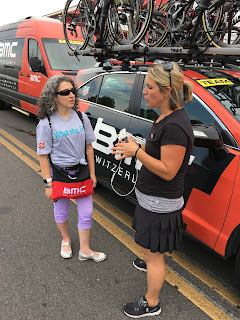If
you have followed this blog regularly, you know that I have had
trouble in the past being approved for my PCSK9 drug, Praluent. There
is a whole process you have to follow to be approved for this drug by
your insurance company, way long after
a specialist doctor decides that it is your last resort.
I
have outlined this struggle and the positive outcome from my last
encounter with denial to be approved for the drug in this entry,
earlier this year:
https://livingwithfh.blogspot.com/2017/04/a-helpful-health-insurance-alas-there.html.
If
you read that entry, you'll see that this insurance liaison helped me
get my appeal approved, after having been rejected a few times. That
man asked me to reach out to him directly should I ever encounter any
problems with my approval again. I knew that offer was not going to
be left hanging and that I will need his help again, and so I did
just recently. But I am jumping ahead of myself!
So,
after being approved for Praluent, finally, in the beginning of this
year, I had to again obtain a pre-authorization from my insurance for
my specialty pharmacy to be able to process my prescription renewal
this August (after 6 months). It works like this: the insurance faxes
a form to my doctor, and as the insurance representative and the
pharmacy manager assured me last time, all they need to see is that
my cholesterol level stays low on this drug, to ensure that the drug
is still working. So, all they are asking the doctor on the form is
what my LDL is, and what it was before starting therapy. Now, I would
think that if the cholesterol level is not low, the doctor would not
even prescribe the medication, right?! Why would they put me through
a treatment that is costly (for anyone), risky (as we are yet to know
the full spectrum of long-term side effects of this drug), if the
drug is not
working for me?! But I know: I ask silly questions!
So,
this August, I get a letter from my specialty pharmacy telling me
that my pre-authorization has been denied to renew my Praluent
prescription, because my doctor has failed to send documentation that
shows that there is a reduction in the LDL level while taking this
drug – I paraphrased, but that was the gist of it. I was confused,
because my LDL level before Praluent was 260, and my last level was
160. So I know my doctor has these levels and his office would have
provided them, if needed.
I
reached out to the same liaison from my insurance that helped me
before, and the whole misunderstanding (again) was cleared up in less
than half of a day. It turned out that all that the insurance company
received from my doctor with their original request was the “fax
form” (I imagine it to be like the fax cover letter with my general
information on it), and not my medical records. When he intervened
and they requested the information again, they received 26 pages of
medical records. After reading those, they approved the
pre-authorization for Praluent on the spot. When they received just
the “fax form”, they turned around and denied me, without so much
as to pause and ask themselves “hmm … maybe there was a fax line
interruption and the rest of the pages are missing and we might need
to call the doctor and make sure there is nothing else coming”, or
something. Anything.
I spoke about the broken processes in the medical world in another
entry
(http://livingwithfh.blogspot.com/2017/08/medical-non-care.html),
but they abound, in my opinion, at every level.
This
time, the insurance also approved me for a whole new year, instead of
the original 6 months. Again, if you have read in the past: so far, I
have been on Praluent for 18 months (give or take a couple of months
when the drug was denied and I didn't take it), and I needed a
pre-authorization from my insurance every 6 months in order for the
specialty pharmacy to fill the prescription. After 18 months, the
renewal is now required just every year.
I
will have to say, it was helpful to have this relationship and be
saved an appeal, or several.
I
still believe that there are still a lot of rusty links in our
processes. Maybe these medications are still very new, maybe the drug
processing folks are still too little trained, what have you: if you
are on any of these drugs, or any drugs where documentation from the
doctor to verify your condition is still needed with every refill, be
vigilant and act fast to stand up for your cause. I have made this
connection with the insurance person through The FH Foundation who
has introduced me to him as they knew about my difficulty to obtain
an approval. Your employer (if you have your insurance through them)
should have an advocate for your insurance that you can connect with
for such cases. I will continue to do my share to push for more
changes, more efficiencies to ensure they finally get the message and
that filling such drugs gets to be routine for them, but sometimes,
it might take a whole village.
The
good moral of this story, however, is this: that the insurance
companies and the specialty pharmacies, albeit marred in
bureaucracies and lack of patient understanding at times, are willing
to listen and learn. Or at least some of them are.










